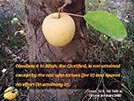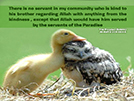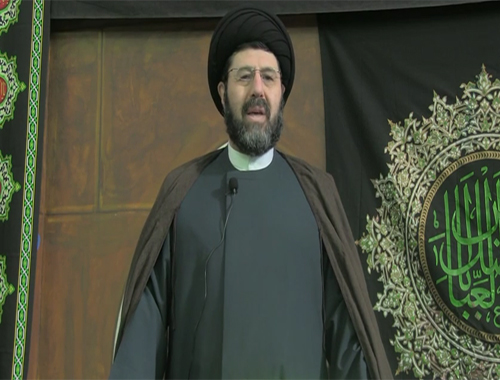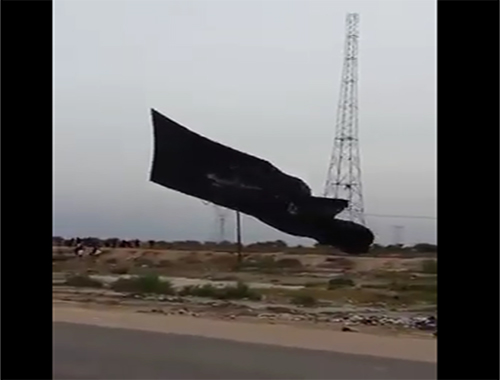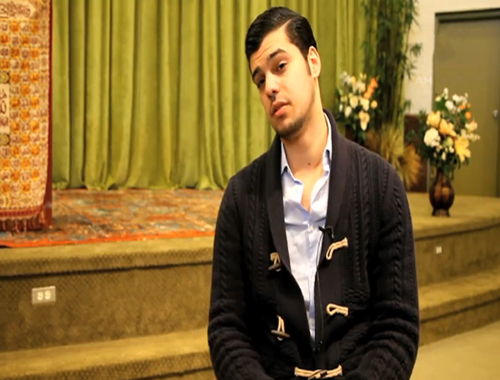verse106
- Details
- Hits: 2637
(106) يا أَيُّهَا الَّذِينَ آمَنُوا شَهادَةُ بَيْنِكُمْ إِذا حَضَرَ أَحَدَكُمُ الْمَوْتُ حِينَ الْوَصِيَّةِ اثْنانِ ذَوا عَدْلٍ
مِنْكُمْ أَوْ آخَرانِ مِنْ غَيْرِكُمْ إِنْ أَنْتُمْ ضَرَبْتُمْ فِي الْأَرْضِ فَأَصابَتْكُمْ مُصِيبَةُ الْمَوْتِ تَحْبِسُونَهُما
مِنْ بَعْدِ الصَّلاةِ فَيُقْسِمانِ بِاللَّهِ إِنِ ارْتَبْتُمْ لا نَشْتَرِي بِهِ ثَمَناً وَ لَوْ كانَ ذا قُرْبى وَ لا نَكْتُمُ شَهادَةَ اللَّهِ إِنَّا إِذاً لَمِنَ الْآثِمِينَ
106. " O' you who have Faith! call to witness between you when death approaches any of you, while making a bequest, two just persons from among you, or two others from other than you, if you are travelling in the land and the affliction of death befalls you, detain the two after the prayer, then if you doubt them, they shall swear by Allah (saying): ' We will not sell it for any gain, even if it were a relative, and we will not conceal the testimony of Allah; for then we would indeed be among the sinners'."
Occasion of Revelation:
Upon the revelation of the above holy verse, as well as its two successive ones, it has been narrated that: a Muslim believer, called Ibn-i-'Abi-Mariyah, accompanied with two christian Arabs, by the mames of Tamim and 'Uday, came out of Medina with the intention of trade. During the time they were travelling, Ibn-i-'Abi-Mariyah, who was a Muslim, became sick. He wrote his testament and hid it inside his properties. Then he trusted those properties with his Christian fellow-travellers.
Before his death, he bequeathed that those two christians would deliver them to his family. After his death, those two fellow-travellers untied his furniture and took its worthy and interesting parts, and then they returned the rest to the inheritors of the man.
When the inheritors opened the parcel of the properties, they did not find some parts of what Ibn-i-'Abi-Mariyah had brought with him. But suddenly they saw the testament he had left. They found that the list of all the stolen things were recorded in that testament. They detailed the matter for those two Christian fellow-travellers, but they denied and said that they delivered them what he had given them. Then, they could not help complaining the Prophet (p.b.u.h.). So, the verse was revealed and stated its ordinance.
Commentary :
One of the most important matters which Islam emphasizes on is the subject of observing and protecting the rights and properties of people, and, in general, the execution of social justice.
At first, in order that the inheritors' rights in the properties of the diseased not to be spoilt, and that the rights of those members remained behind, including orphans and minors, not to be violated, the Qur'an instructs the believers, saying:
" O' you who have Faith ! call to witness between you when death approaches any of you, while making a bequest, two just persons from among you, ..."
Here, the expression of bearing witness, of course, is accompanied with the accomplishment of testament. In other words, these two persons are witnesses to both the testament and the executors of the testament. Thus, the verse indicates that if you are on a journey and one of you is going to die and you cannot find any executors of testament and witnesses, then you may take two persons from non-Muslims for the purpose. The verse continues saying:
"... or two others from other than you, if you are travelling in the land and the affliction of death befalls you, ..."
The objective meaning of 'other than you' (non-Muslims) is only the people of the Book, viz. the Jews and the Christians, because nowhere Islam has attached importance to pagans and idolators.
Then the verse says:
"... detain the two after the prayer, then if you doubt them, they shall swear by Allah (saying) : ' We will not sell it for any gain, even if it were a relative, ..."
And also they should add:
"... and we will not conceal the testimony of Allah; for then we would indeed be among the sinners'."
It is cited in Qurar-ul-Hikam, vol. 1, p. 185 that Hadrat Imam Amir-ul-Mu'mineen Ali (a.s.) said: " The quickest retribution is the retribution of a false oath."
* * * *


